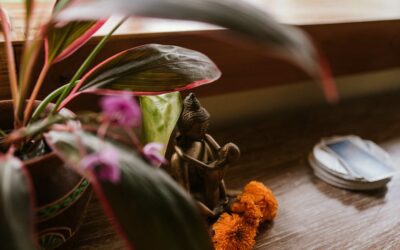So you want to be a yoga teacher?
Are you attracted to the freedom the lifestyle seems to afford? Maybe you have seen the beneficial effects of a daily practice on your everyday life, and you want to deepen your own practice? Are you committed to helping people along their healing and awakening journey? Or maybe you just want to enjoy an inspiring yoga retreat in Bali, surrounded by new friends?
All of these and more are valid reasons. There are a few less valid reasons to become a yoga teacher. You want more instagram followers? Or maybe you are drawn to positions of power? You see yoga as a growing trend with money to be made and you don’t want to miss the bandwagon? These are not the most pure reasons to participate in a yoga teacher training course. However, after one month of serious practice, and mind expanding teachings, your reasons for teaching yoga will probably change.
Regardless of where you come from or why you are here reading this, you are probably feeling a call to change your life. There’s a little seed in the back of your mind that seems to grow when you take a vacation, or have a mind expanding experience. Maybe it’s a thought that creeps in when you are lying awake at night wondering why you can’t sleep peacefully. It’s an itch. It’s there and you can’t ignore it forever. Sooner or later you will have to scratch it.
Lifestyle
There is something special about having a skill that you can offer almost anywhere in the world. Yoga can be found in upscale urban studios and prison wards. From small villages in the mediterranean to international spiritual hubs like Ubud, Bali. In our yoga retreats at Samyama, I meet teachers from all across the globe. They come from places where you might expect yoga to clash with local religious culture and places where basic needs trump self-care. All across the globe people are improving their lives through the transmission of ancient healing wisdom, passed down through the ages. Perhaps this wisdom is more needed now than ever before.
This gives rise to teaching opportunities in far off, often exotic places. For the adventurous, those who march to the beat of their own drum, a nomadic lifestyle is deeply nourishing. Even for yoga teachers who stay put in one city or town, the constantly changing nature of the practice, what it reveals to us, and to our students…well let’s just say that boredom is a word that doesn’t exist in our vocabulary. The yogic lifestyle is one of gratitude, of living the principles of kindness and compassion off the mat. It is one of stillness and being. It is about letting go of the doer inside – the one seeking to be constantly entertained. Yoga practitioners engage in constant self-inquiry practices, questioning what drives our personalities, our reactions, our triggers. The yogic lifestyle is one of constant learning and growth.
Healing
It is incredible how many scientific studies are done on the benefits of yoga. You are probably already familiar with the many physical benefits, such as increased flexibility and strength in the joints and muscles. At Samyama, however, we are more interested in the subtle energetic, emotional and mental bodies. In our meditation and yoga teacher training in Bali, we recognize the great power of the heart and the mind-body connection for healing.
For instance, did you know that the heart has an electromagnetic field that is 60 times stronger than that of the brain? Check out the work of the HeartMath Institute for more on this finding. As yogis, we use pranayama – breathing exercises and meditation to slow down the heart beat. As a result we alter both our physical body – especially the nervous system – and our emotions. Furthermore, our electromagnetic field has an affect on those around us, even if we are not always aware of it.
The work of Dr. Joe Dispenza explores the emerging field of psychoneuroimmunology which confirms the important connection between mind and body. Our thoughts create biochemical reactions in the brain that send messages to our body. During meditation our thoughts become calm and quiet. We rest in the heart, cultivating feelings of love and gratitude. These feelings of love release more love hormones and consequently the feeling magnifies. Besides feeling fantastic, Dr. Dispenza speaks of the potential for what he calls biological upgrades. As the name ‘immunology’ suggests, these upgrades can help us to prevent and even overcome serious medical disorders.
Regardless of whether or not meditation can actually heal disease, it certainly helps us to deal with the consequences of pain and suffering. Yoga and meditation give us tools such as acceptance and forgiveness which help us to overcome even the most difficult hardships.
Service
The best teaching is an act of service which transcends the personal ego. The teacher is simply a channel, open to divine grace and inspiration. We are then able to intuitively pass on the most useful information to our students according to their level and needs. We do not teach from our rational mind. Rather we settle in the heart and transmit the teachings. Anyone with a strong and consistent practice can do this.
I hesitate to say that everyone will be a good yoga teacher after only 200 hours of training. Instead, your 200 hr yoga teacher training is an important first step in developing your own personal practice. We can only transmit what we know and what works for us. Our agenda as teachers should not be about personal gain or glory. First and foremost, we are here to help our students to the best of our ability. As a result we have the power to give an incredible gift, both to our students and to ourselves.
A Living
Yoga and meditation are becoming more recognized as powerful tools for health and wellbeing. Consequently, this creates more opportunities to make a living as a yoga instructor. Like any independent venture, a successful yoga business takes time, dedication and persistence, but it’s worth it. Remember that what you are doing is a service. Yoga can benefit everyone from office workers on their lunch breaks, to children in schools, to mental health patients in clinics and beyond. Use some of the creative energy you cultivate in your practice to carve out a niche for yourself. Your practice will make you a better teacher, and vice versa.
Realization
Isn’t Self-realization what we are all seeking at the end of the day? We want to be self-actualized, living our fullest potential, and shining as brightly as we possibly can. Once you have tasted the infinite it’s hard to ignore. One option would be to renounce life and live in a monastery or ashram, spending much of our days in meditation and spiritual studies. This is the path for some. However, most of us prefer to live a spiritual life as householders. We may want a family or we are not ready to renounce all of our worldly possessions and attachments. For this group, working in the realm of spirituality is a beautiful way to live our practice, be of service to our students and constantly deepen our own experience of yoga and meditation.
So do you still want to be a yoga teacher? For the sake of your own healing and the much needed healing of our communities and planet, I sincerely hope so.





0 Comments